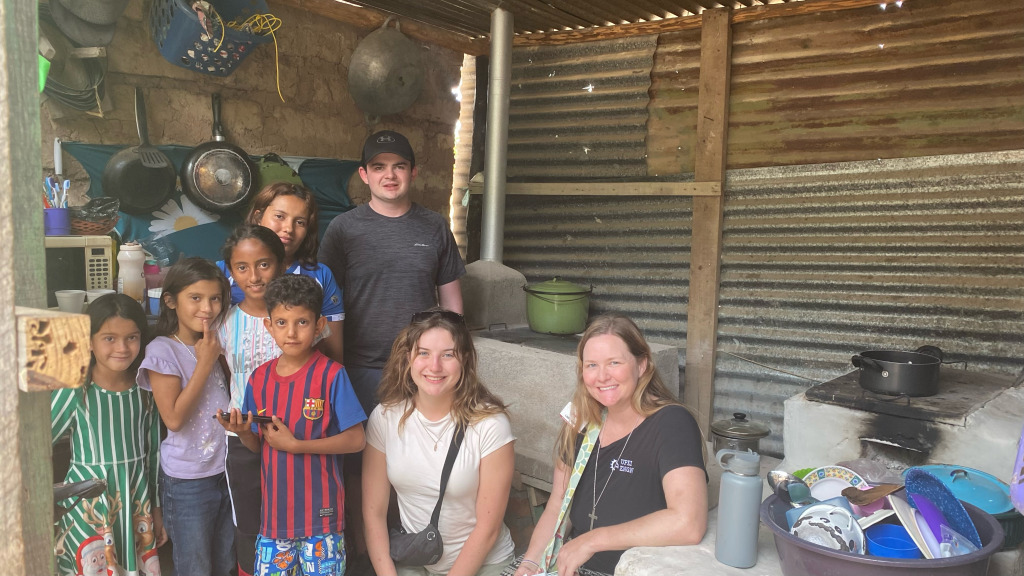UPEI engineering students to give public presentation about working trip in Honduras

Seventeen UPEI sustainable design engineering students spent their two-week study break earlier this year in rural Honduras where they built eco-stoves for six families in one community and did an engineering survey project in another town to ensure that the people living there have access to clean water.
On Tuesday, April 25, at 6 pm, the students will give a public presentation about their experience in the Faculty of Sustainable Design Engineering (FSDE) building, Room 128A. It will also be streamed on Zoom. Everyone is welcome.
The students went to Honduras through Global Brigades at UPEI, which offers students hands-on, volunteer experience relevant to their future career path. The student-led club is affiliated with the Global Brigades Organization, an international movement of students and professionals working alongside local communities and staff to implement sustainable solutions to health and economic disparities.
For the eco-stove project, the students worked with professional Honduran masons to build brick stoves with flues that vented smoke from cooking outside the home. The families already had stoves, but the smoke generated from cooking remained in the houses. The removal of the smoke improves the health and safety of the residents. When the stoves had cured enough to be used, the students enjoyed a meal with the families they had worked with.
The students also worked in another community to improve access to potable water for 50 homes. Currently, the residents get water from a central tank through rubber hoses running to some of the houses. However, many houses are not included, the hoses often leak, and water pressure is poor, especially for the homes furthest away from the central source.
They met with the residents to determine factors affecting their water usage, such as the number of people in the home, distance from the central water tank, and altitude and location. They then determined the diameter and length of pipe needed to ensure that each home gets adequate water. Under the guidance of a professional Honduran engineer, they calculated the amount of pipe needed for the entire project, made recommendations such as the use of PVC pipe instead of rubber hoses, and presented a report to the community. The community can use that report to find funding for the new pipe, which a future brigade may install.
Dr. Libby Osgood, assistant professor in the FSDE, who led the group, said that the trip had numerous benefits for the students as well as the communities involved. For many of them, it was their first trip to Central America where they experienced the stark reality of life in a developing impoverished nation. They also worked alongside professional engineers, translators, social workers, and masons from Honduras, and saw the impact that engineers can have on people’s lives.
“People often don’t realize that engineering is a ‘helping’ profession,” she said. “This experience helped our students understand that as engineers, they have a responsibility to work for the betterment of society—from the local to the global level.”
Third-year engineering student Maddy Cronin, who organized the engineering brigade, said that the students had an amazing experience.
“We met so many amazing and welcoming people and learned about their country and culture while making a difference in their communities. Seeing engineering from a global perspective made me realize just how impactful it can be when we can use our skills to help others. This experience will stay with us as we work as engineers, and I’m sure it will have an impact on the decisions we make during our careers.”